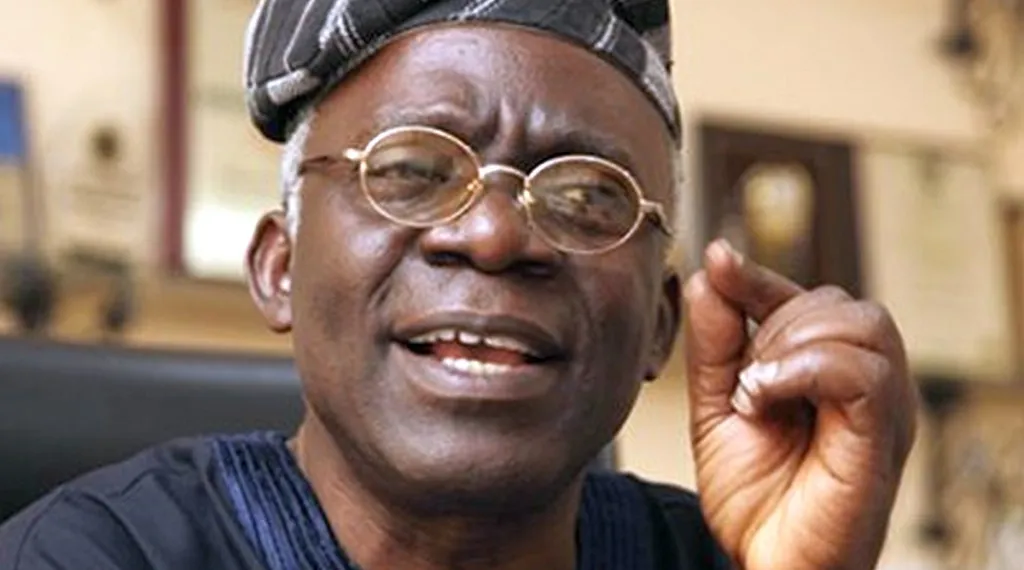Renowned human rights advocate and Senior Advocate of Nigeria, Femi Falana, has sharply condemned the proposed legislation seeking to mandate compulsory voting in Nigeria. He argued that the bill stands in clear conflict with constitutional provisions and is ultimately unworkable within the bounds of the nation’s existing legal system.
The bill, titled “A Bill for an Act to Amend the Electoral Act 2022 to Make it Mandatory for All Nigerians of Majority Age to Vote in All National and State Elections and for Related Matters”, was introduced by Speaker of the House of Representatives, Honourable Abbas Tajudeen. It reportedly passed a second reading in the House last week, sparking widespread public interest and debate.
Falana acknowledged that the bill aims to tackle voter apathy and boost electoral participation but warned that it contradicts several provisions of the 1999 Constitution, particularly those protecting citizens’ fundamental rights to privacy, freedom of thought, and conscience.
“The compulsory voting proposal is inconsistent with Sections 37, 38, 77(2), 135(5), and 178(5) of the Constitution,” Falana stated, arguing that these sections affirm the right of citizens to make political choices freely and without coercion.
To support his argument, Falana cited key judicial precedents, including:
Nwali v. Ebonyi State Independent Electoral Commission (2014), where the Court of Appeal ruled that open voting violated the right to privacy.
Medical and Dental Practitioners Disciplinary Tribunal v. Okonkwo (2001), where the Supreme Court upheld the freedom of thought and religion in a medical ethics case involving blood transfusion refusal.
Lagos State Government v. Asiyat AbdulKareem (2022), where the Supreme Court upheld the right of Muslim female students to wear hijab in public schools.
Falana also drew attention to the 2020 court ruling in Digital Rights Lawyers Initiative v. National Identity Management Commission, where the judiciary broadened the constitutional scope of the right to privacy, extending it to encompass data protection and the sanctity of personal space.
Beyond the constitutional inconsistencies, he raised significant concerns about the feasibility of enforcement. “How do you criminalize and prosecute millions of citizens who opt out of elections that many perceive as mechanisms for perpetuating failed leadership and systemic corruption?” he asked pointedly.
The senior lawyer further criticized the National Assembly for focusing legislative energy on mandating voter participation, rather than addressing pressing electoral deficiencies—particularly the absence of legal legitimacy for digital voting innovations such as the Bimodal Voter Accreditation System (BVAS) and the INEC Result Viewing Portal (IREV). While these technologies were deployed in recent polls, Falana noted that the Supreme Court had dismissed their use as unconstitutional due to a lack of statutory endorsement.
“Instead of pushing for compulsory voting, the National Assembly should amend the Electoral Act to formally include BVAS and IREV, as well as implement key recommendations from the Uwais Electoral Reform Panel,” he advised.
Among the key reforms proposed are the decentralization of the Independent National Electoral Commission (INEC), the implementation of a proportional representation system, expedited adjudication of election disputes prior to the swearing-in of victors, and the establishment of a dedicated commission to prosecute electoral offences.
Senior Advocate of Nigeria and prominent human rights lawyer, Femi Falana, emphasized that while Section 14(2) of the Nigerian Constitution affirms the citizen’s role in governance, enforcing mandatory voting cannot stand on legal grounds unless Chapter II—which outlines the socio-economic rights of citizens—is rendered justiciable in a court of law.
He further cited Article 13(1) of the African Charter on Human and Peoples’ Rights, which affirms the right of every individual to participate in their government “freely and in accordance with the provisions of the law.” Falana argued that the term “freely” inherently protects the right to abstain from voting, thus invalidating any form of legal compulsion.
In closing, Falana cautioned that any attempt to enforce voting through legislation, without addressing constitutional gaps and laying a solid legal framework for electoral reform, risks undermining both the rule of law and the democratic principles it seeks to uphold.
Africa Today News, New York
Crédito: Link de origem


